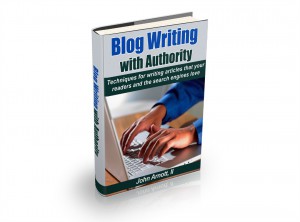 The key to maintaining a popular, successful blog is to establish a strong relationship with your readers. If readers view your blog as being nothing more than generic source of the same rehashed content that’s found elsewhere on the web, you will ultimately fail to gain any notable traction. If your readers don’t know much about you, you have less chance of connecting with them.
The key to maintaining a popular, successful blog is to establish a strong relationship with your readers. If readers view your blog as being nothing more than generic source of the same rehashed content that’s found elsewhere on the web, you will ultimately fail to gain any notable traction. If your readers don’t know much about you, you have less chance of connecting with them.
This Is Where An ‘About the Author’ Page Proves Useful.
With an ‘About the Author’ page, you can show readers that you are a real person, giving them a sneak peek at your personal side.
Use a Head-Shot Photo
When designing your about-the-author page, be sure to include a head-shot photo of yourself. Readers want to see what bloggers look like, as this allows them to put a face with the content. You don’t have to necessarily include an entire photo gallery of your life, but rather upload a single, small-sized photo that clearly shows your face.
Use Your Real Name or a Pen Name
This is another essential component of an about-the-author page. Some bloggers use keywords instead of names, assuming it will help to boost their search rankings. In reality, though, this usually has a negative effect by sending readers in the opposite direction. Stick with either your real name or a pen name when blogging.
Getting Personal
An effective about-the-author page should consist of a few short paragraphs that reveal a personal side of the author/blogger. You want to avoid writing generic, commercialized-style content, and instead write about who you are, why you started blogging, and what you hope to accomplish with your blog. This will make you more relatable to readers, at which point they should view you in a more positive light.
Link to Social Profiles
Why should you link to your social media profiles from the author page? Doing so offers a few different benefits, one of which it to provide additional information for readers. If a reader wants to learn more about you, he or she can visit your social media profiles.
Another reason why you should link your social profiles from the author page is because it will attract new followers to your social media accounts. The success of social media marketing relies heavily on the number of followers you have. The more followers you have, the greater your brand visibility.
A third benefit of linking your social media profiles from the author page involves SEO. Search engines will notice the social media profile links, following them and possibly boosting your blog’s ranking in the process.
Contact Information
Of course, you should also include your contact information somewhere in your author page. If a reader has a question to ask, he or she may look here for your contact information. Furthermore, publicly displaying your contact information creates a greater sense of trust in readers, which can prove invaluable in converting them into paying customers (assuming your blog sells a product or service).
Have any other tips for creating an effective author page? Let us know in the comments section below!


I find it very difficult to talk about myself, but circumvent that by asking my family, friends and associates for their thoughts.
My favorite author pages are those that give us personal connections to the author. I love learning random facts about the author and finding out his or her story. From a marketing approach, this type of relationship with your readers is what keeps them coming back for more.
My “About” page is the most highly visited page on my site, as is the case for most people. It’s critical to use that to your advantage.